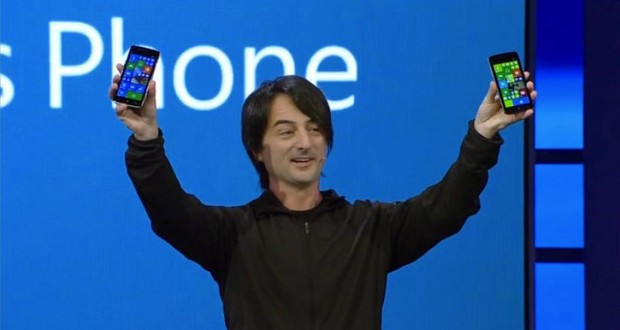<p style="text-align: justify">As part of the Microsoft Build developer’s conference, Microsoft has announced the new virtual assistant for its Windows Phone operating system. The virtual assistant, named Cortana, was developed by the company in an effort to outshine Siri, the similar virtual assistant offered by Apple on its iPhone devices.</p>
<p style="text-align: justify">According to Scottsdale entrepreneur, Jason Hope, (http://sens.org/outreach/outreach-blog/release-internet-entrepreneur-jason-hope-pledges-half-million-dollars-sens) the strategy is one that could end up benefiting the struggling Windows Phone operating system greatly.</p>
<p style="text-align: justify">“Windows Phone is in a position right now where they really need something they can hang their hat on,” stated Mr. Hope. “Right now, most mobile users think of Windows Phone as just a poor representation of a desktop operating system, if they think of it at all, because there’s nothing that really gives it any personality, or really sets it apart from iOS or Android in any way. If they’re successful with Cortana, it would mean that they’ve basically done Apple better than Apple does Apple, and that would certainly get a few people out there to sit up and take interest.”</p>
<p style="text-align: justify">During the development process, the company worked with actual human assistants, in order to understand how Cortana could serve its owners better. Based on the insights gathered from those interviews, the company came to the conclusion that the thing that would set Cortana apart from Siri and other virtual assistants like it is that Cortana would be better about proactively anticipating what its owner wants and needs, in the same way that good human assistants do for their bosses.</p>
<p style="text-align: justify">In addition to doing things like answering questions, performing searches, and scheduling calendar appointments, Cortana will also look at things like search history and location to find things out about an owner’s personality. By detecting things like an owner&#8217;s interests and travel patterns, Microsoft hopes that Cortana will be able to deliver content that will be useful to the owner, without the owner even having to ask for it. This move could be a high-risk, high-reward one for Microsoft.</p>
<p style="text-align: justify">“If the idea is to create something that’s better and more useful than Siri, giving it the ability to be more proactive could be a great start. However, I think it actually has to do a good job of anticipating owner interests in order for the idea to work. Google’s done something similar with its Google Now technology, but I think that the difference there is that the content is delivered passively; if the information isn&#8217;t relevant, it&#8217;s easier to ignore. If Cortana is meant to be an active assistant, and it ends up delivering the wrong information, people might find that very annoying.”</p>
<p style="text-align: justify">The announcement comes as part of a new push by Microsoft to help its Windows Phone operating system catch up with Android and iOS in the smartphone marketplace. At the Microsoft Build Conference, Microsoft also announced they would be ending licensing fees for any device with a screen smaller than nine inches. While that move was seen as a push to capture more of the smartphone market in developing economies by making Windows Phone more attractive to manufacturers of affordable devices, Cortana seems to be squarely aimed at helping Microsoft take on Apple and Android in the premium smartphone market.</p>
<p style="text-align: justify">If that is indeed the company’s plan, it still has quite a ways left to go: Windows Phone accounted for just 3% of all worldwide smartphone shipments in the fourth quarter of 2013, according to IDC, placing the operating system in a distant third place to Android and iOS. Also, Windows Phone is coming into the virtual assistant game very late in the day: Siri has been available on iPhones since 2011, and Google Now has appeared on Android devices since 2012. Now, it will be up to consumers—many of who already own iOS and Android devices—to decide whether or not Microsoft’s claims about Cortana offering a better experience than Siri are really true, and if that makes up for the extra years it took Microsoft to deliver the service.</p>
<p style="text-align: justify">“Of course, Microsoft was trailing Android and iOS by several years in delivering virtual assistant technology, so it seems like they would try to make up for that fact by coming out with something that would just blow the competition away by being significantly better. I’m not quite sure that’s what Cortana is, but it will be up to the marketplace to decide.”</p>
<p style="text-align: justify">About Author: Amy Taylor is a business and technology writer. Amy began her career as a small business owner in Phoenix, AZ. She enjoys writing about business technology trends. When she isn’t writing, she enjoys hiking with her Alaskan Malamute, Sam.</p>

Microsoft Takes Aim At Apple’s Siri With New Virtual Assistant Cortana
